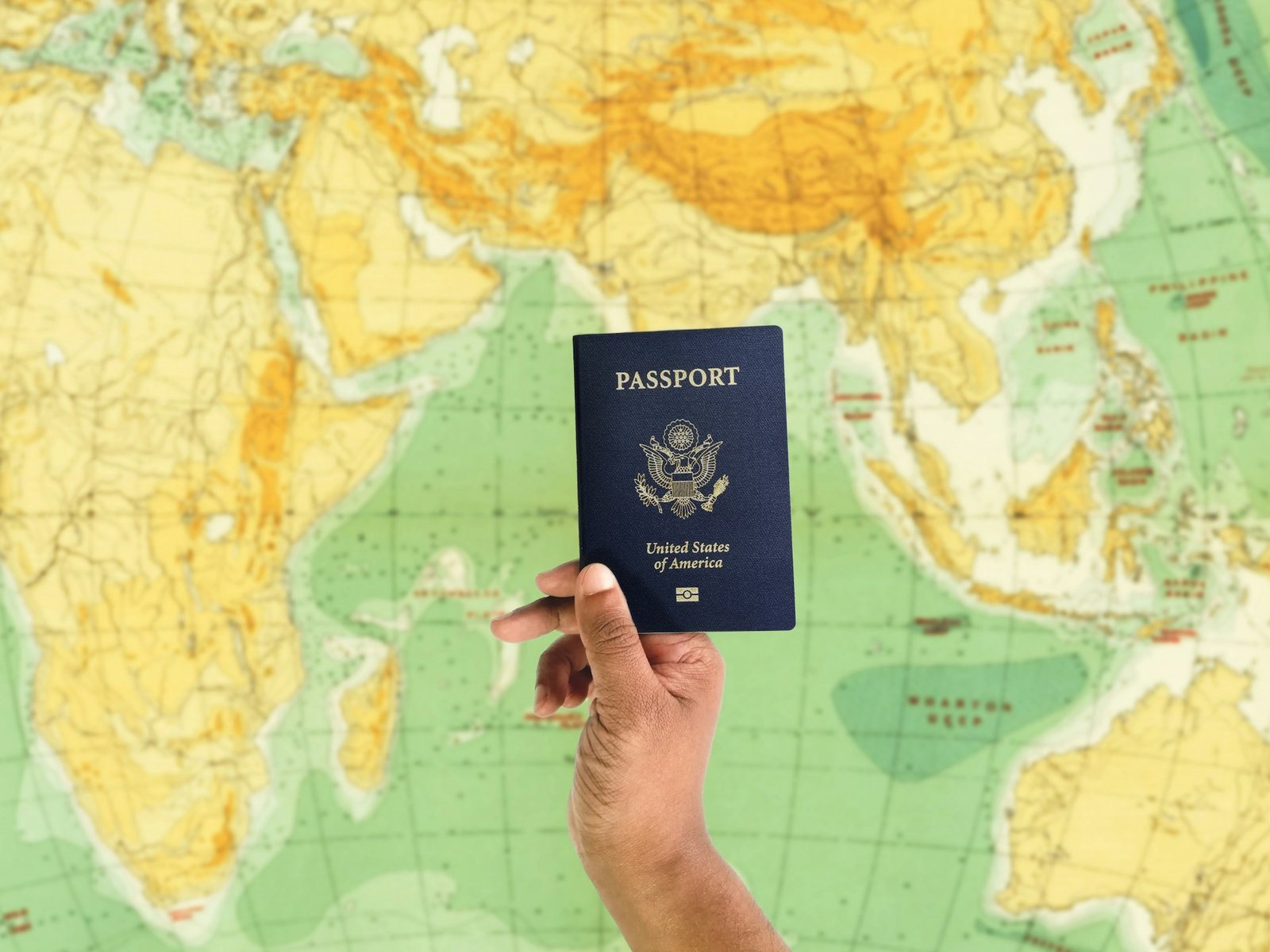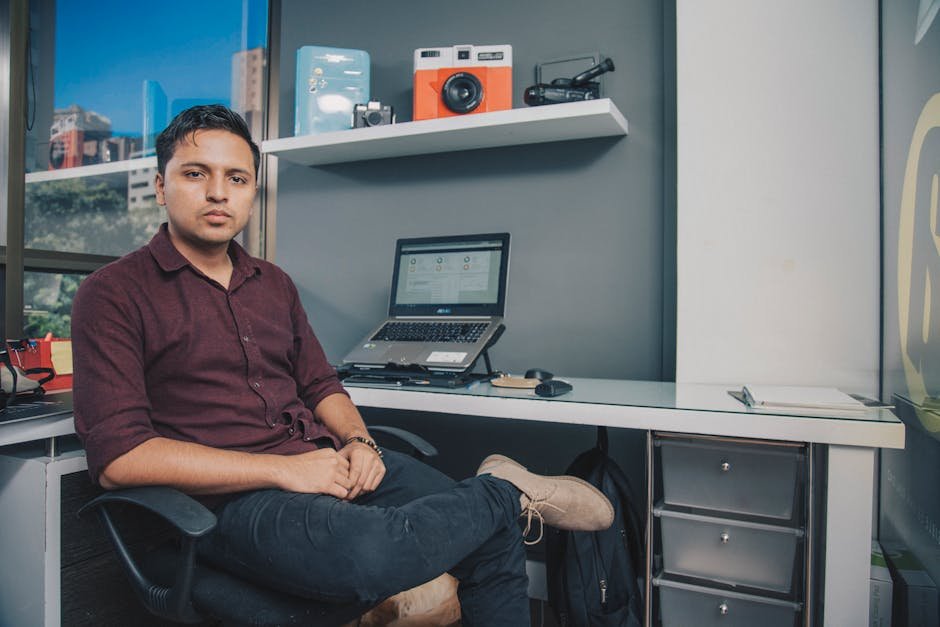As of June 7, 2025, the digital nomad landscape continues to evolve, with an increasing number of countries recognizing the economic potential of remote workers. While the initial wave of digital nomad visas offered exciting new possibilities for short-term legal stays, many nomads are now looking beyond these temporary solutions for a more sustainable, deeply integrated lifestyle. Sustained nomadism often means more than just hopping between countries on tourist visas or even basic digital nomad permits; it involves strategic planning for longer stays, understanding residency options, and navigating the complex world of international taxation. This deep dive explores how to go beyond the standard visa to secure a stable and fulfilling long-term nomadic life.
1. The Evolution of Digital Nomad Visas: A Quick Overview
The proliferation of “Digital Nomad Visas” (DNVs) over the past few years has been a game-changer. Countries like Croatia, Estonia, Portugal, Spain, and a growing list of others have introduced specific pathways for remote workers to reside legally for periods typically ranging from six months to two years.
These DNVs offer several benefits:
- Legal Stay: They provide a clear legal framework to reside and work remotely, avoiding the grey areas of working on a tourist visa.
- Ease of Application: Often, they are simpler to apply for than traditional work permits, with clearer income requirements.
- Some Benefits: Some DNVs might offer limited access to local services or unique tax incentives for a period.
However, many DNVs are designed for a temporary stay and do not automatically lead to permanent residency or citizenship. They often have specific income thresholds, require proof of foreign-sourced income, and may impose limitations on working for local entities. This temporary nature often prompts digital nomads to explore more enduring options for a truly sustained, integrated life abroad.
2. Beyond the Digital Nomad Visa: Why Consider Longer-Term Options?
While a DNV is a great starting point, a strategic approach to sustained nomadism often necessitates exploring visas that offer more than just a temporary stay.
- Deeper Cultural Immersion: Living in a country for an extended period allows for a richer, more authentic cultural experience, moving beyond tourist hotspots into local communities.
- Stability and Predictability: For those seeking a base, or for nomads with families, a longer-term visa provides crucial stability, facilitating access to schools, consistent healthcare, and predictable routines.
- Access to Local Services: With long-term residency, opening local bank accounts, accessing public transportation discounts, and sometimes even local healthcare systems becomes significantly easier.
- Path to Permanent Residency or Citizenship: Many long-term visas and residency programs offer a pathway to permanent residency, and eventually, citizenship, for those who wish to truly put down roots.
- Optimized Tax Implications: While a complex area, long-term residency often comes with clearer tax residency rules, potentially allowing for more favorable tax planning under double taxation treaties.
3. Traditional Paths to Extended Stays & Residency for Nomads
Before the advent of specific digital nomad visas, resourceful remote workers often utilized existing visa categories to extend their stays. Many of these traditional pathways remain viable and, in some cases, superior for long-term goals.
- Retirement/Passive Income Visas (e.g., Portugal’s D7, Spain’s Non-Lucrative Visa):
- Ideal for: Individuals with substantial passive income (pensions, investments, dividends, rental income) who do not intend to work for local companies in the host country.
- Benefits: Often offer a path to residency, and eventually, citizenship. Can have lower income requirements than active employment visas.
- Caveats: Strict rules against engaging in local employment.
- Self-Employment/Entrepreneur Visas (e.g., Spain’s Entrepreneur Visa):
- Ideal for: Nomads looking to establish a local business, contribute to the local economy, or who have substantial plans for self-employment that might generate local income.
- Benefits: Allows active engagement in the local economy, potentially leading to local clients and deeper integration.
- Caveats: Requires a solid business plan, often a significant investment, and local tax compliance.
- Student Visas:
- Ideal for: Those genuinely interested in language learning, pursuing higher education, or specific vocational training.
- Benefits: Provides a clear legal basis for an extended stay. Some student visas allow part-time work.
- Caveats: Requires enrollment in an accredited institution and proof of funds for tuition and living expenses.
- Family Reunification Visas:
- Ideal for: Nomads with a spouse, partner, or direct family member who is already a resident or citizen of the target country.
- Benefits: Straightforward path to residency based on familial ties.
- Caveats: Requires proof of relationship and the ability of the sponsoring family member to support the applicant.
- Investment/Golden Visas (e.g., Portugal’s Golden Visa, Greece’s Golden Visa):
- Ideal for: High-net-worth individuals willing to make a significant financial investment (e.g., real estate, capital transfer, job creation).
- Benefits: Offers a direct, often expedited path to residency, frequently with minimal physical presence requirements.
- Caveats: Very high financial threshold, not suitable for most digital nomads.
4. Understanding Emerging Long-Term Nomad-Friendly Options
Beyond these traditional categories, some countries are creating innovative long-term paths that cater more directly to the remote work lifestyle, albeit with more stringent requirements than simple DNVs.
- Portugal (D7 & D8 Visas):
- D7 Visa (Passive Income/Retiree Visa): Remains a popular choice. Requires proof of passive income (e.g., investments, property rental, pensions) at least equivalent to Portugal’s minimum wage (€820/month in 2024), plus more for dependents. It’s explicitly not for active remote work income in most interpretations, though practices vary by consulate. It leads to residency.
- D8 Visa (Digital Nomad Visa): Introduced in late 2022, this is a national visa for remote workers (employees or freelancers) earning at least four times the Portuguese minimum wage (approx. €3,280/month in 2024). It’s designed to lead to a residence permit, making it a direct path to long-term residency and eventually citizenship.
- Spain (Non-Lucrative Visa vs. Digital Nomad Visa):
- Non-Lucrative Visa (NLV): Similar to Portugal’s D7, it’s for those with significant passive income who will not engage in any work activities (remote or local) in Spain. It requires higher financial solvency (e.g., around €30,000 in savings or regular income). It leads to residency.
- Digital Nomad Visa: Spain’s DNV, launched in 2023, is for remote workers earning from non-Spanish sources (around €2,520/month for the main applicant). Crucially, DNV holders can benefit from a favorable tax regime (flat 24% income tax for the first €600,000 for 5 years via the Beckham Law), unlike NLV holders who are subject to standard progressive Spanish income tax on worldwide income after 183 days.
- Greece (Financial Independent Person – FIP – Visa):
- A compelling option requiring proof of stable passive income (e.g., €2,000/month for a single applicant, increasing for dependents) from non-Greek sources. It leads to a two-year residence permit, renewable, and a path to permanent residency.
- Mexico (Temporary Resident Visa – Economic Solvency):
- While not a dedicated “digital nomad visa” per se, Mexico’s Temporary Resident Visa (TRV) under the “economic solvency” category is a popular route. It requires consistent monthly income (around $4,300 USD/month for the last 6-12 months as of 2025, or significant savings of about $73,257 USD). This visa allows for a stay of up to four years, after which you can apply for permanent residency.
- Georgia (Tax Residency for High-Income Earners & “Remotely from Georgia” Program):
- Georgia is unique. While it offers a generous 365-day visa-free stay for many nationalities, its key draw for long-term nomads is its tax residency program for high-income earners and the “Remotely from Georgia” program. Individuals earning over GEL 200,000 (approx. $75,000 USD) and spending over 183 days in Georgia can apply for tax residency and potentially benefit from a unique 1% personal income tax rate if they register as an Individual Entrepreneur with Small Business Status. This offers a very tax-efficient long-term option, making it a compelling alternative to traditional visas.
For a more comprehensive look at specific country requirements and the application process for these, and other short-term options, you can consult various resources, including dedicated Digital Nomad Country Wise Visa Guides.
5. Key Considerations Before Committing to Long-Term Residency
Choosing a long-term visa or residency program is a significant decision. Several factors must be meticulously considered to ensure a smooth transition and a sustainable lifestyle.
- Tax Implications: This is arguably the most critical and complex aspect.
- Tax Residency Rules: Understand the “183-day rule” and other criteria (e.g., center of vital interests, permanent home) that determine if you become a tax resident in your new country.
- Worldwide Income: Many countries tax residents on their worldwide income, not just income earned locally.
- Double Taxation Treaties (DTTs): Research if a DTT exists between your home country and the host country to avoid being taxed twice on the same income.
- Permanent Establishment (PE): If you’re running a business, be aware that maintaining a “fixed place of business” (even a dedicated home office or consistently used coworking space) might trigger a PE, subjecting your business to local corporate taxes.
- Professional Advice: Always consult with a qualified international tax advisor specializing in digital nomads to understand your specific obligations.
- Healthcare Access:
- Will your international health insurance suffice, or will you need to contribute to the local public healthcare system?
- Some visas require proof of comprehensive private health insurance.
- Banking & Financial Integration:
- You will likely need to open a local bank account, which can sometimes be challenging without proof of residency.
- Consider the ease of transferring funds internationally.
- Language & Cultural Integration:
- A longer stay means deeper immersion. Are you prepared to learn the local language and adapt to cultural norms? This significantly impacts your quality of life.
- Path to Permanent Residency/Citizenship:
- If your ultimate goal is long-term settlement or citizenship, ensure your chosen visa path genuinely leads there and understand the timeline and requirements (e.g., language tests, integration requirements).
- Bureaucracy & Processing Times:
- Visa and residency applications can be lengthy, complex, and involve significant paperwork. Be prepared for potential delays and frustration.
- Local Laws and Regulations:
- Understand employment laws, rental agreements, and other local regulations that will affect your daily life.
Conclusion: Beyond Transient Travel, Towards Deep Living
The journey of a digital nomad is evolving. While the initial thrill of constant movement is captivating, many remote professionals are now seeking more than just fleeting experiences. They desire a deeper connection to the places they inhabit, greater stability, and a more sustainable way of life. Going “beyond the standard visa” is the strategic key to unlocking this next level of digital nomadism. It’s about meticulously planning your legal status, understanding the financial and tax implications, and choosing a path that aligns with your long-term goals. This proactive approach ensures that your nomadic adventure isn’t just about moving through the world, but about truly living in it, establishing roots that, while perhaps temporary, allow for profound personal and professional growth.







